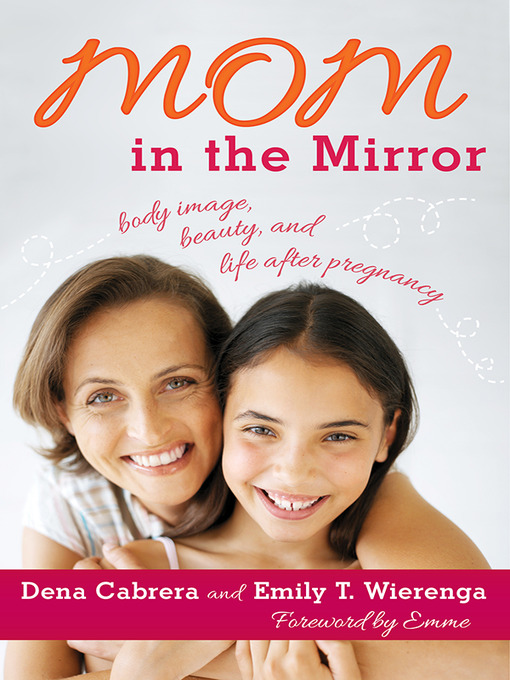- Popular Magazines
- Just Added
- Cooking & Food
- Fashion
- Health & Fitness
- Home & Garden
- News & Politics
- See all magazines collections
Mom in the Mirror
Body Image, Beauty, and Life after Pregnancy
Drawing on the wisdom of eating disorders expert Dr. Dena Cabrera, as well as the personal experiences of former anorexic Emily Wierenga, Mom in the Mirror is a physical, mental, emotional, and spiritual response to a female generation seeking its true identity in an appearance-based world. With chapters that deal with bruises from the past, misconceptions about pregnancy, life before and after children, marriage and motherhood, spiritual and physical nourishment, relationships with friends and family, and the changing role of a mother as her children age, it is a holistic approach to the age-old questions: Who am I, and why am I here? Comprising personal stories, expert advice, reflection questions, and helpful tools, this book is an inspiring read intended for women everywhere who want to restore a positive body image and to overcome the insecurities that arise when pregnancy is over and child-rearing begins.
-
Creators
-
Publisher
-
Release date
April 29, 2013 -
Formats
-
Kindle Book
-
OverDrive Read
- ISBN: 9781442218673
-
EPUB ebook
- ISBN: 9781442218673
- File size: 634 KB
-
-
Languages
- English
-
Reviews
-
Publisher's Weekly
June 17, 2013
In this self-help book for Christian woman who struggle with body image, Cabrera and Wierenga (Chasing Silhouettes) offer the perspectives of a licensed clinician and an author who has personally battled anorexia, respectively. While the authors mention that one not need share the Christian faith in order to adopt an outlook of personal worth that precludes dangerous eating patterns, the bulk of the advice strongly emphasizes reliance on Christ. Replete with anecdotes and supportive phrasing, the book covers such challenges as physical recovery from pregnancy, preparing nutritious meals for one's family, and managing social relationships. The counsel regarding how to balance personal needs with those of one's marriage hinges on the concept that women need to feel cherished while men need to feel respected. Though the language devoted to this and other topics remains sympathetic, it grows repetitive, privileging God to solving specific problems. Each chapter ends with a list of thoughts for reflection and tools for change, while the chapters themselves typically consist of less specific healing terminology, positive quotations, and personal stories. Women who agree with the authors' spiritual assessments will benefit from this book's encouraging tone. -
Library Journal
May 15, 2013
According to the authors, clinical psychologist Cabrera and Wierenga (Chasing Silhouettes: How To Help a Loved One Battling an Eating Disorder; Save My Children: The Story of a Father's Love), a recovered anorexic and mother of four, 75 percent of females aged 25-45 exhibit disordered eating behaviors. The book aims to "help women separate the truth from the lies about who they are and to subsequently improve relationships with their bodies, their families, and their Creator." Interweaving their stories with clinical and spiritual advice, the book then unfortunately focuses on describing how unhappy people are, resulting in an overriding tone of gloom. For example, "The problem is that we, as women, haven't been encouraged to love ourselves because that wouldn't feed the cosmetics industry." VERDICT The authors are sympathetic to pain but short on advice, and the pathological dysphoria is ultimately irritating. This is unlikely to be appreciated by mainstream moms, even those of us who feel bad about our necks. Depressing.
Copyright 2013 Library Journal, LLC Used with permission.
-
Formats
- Kindle Book
- OverDrive Read
- EPUB ebook
subjects
Languages
- English
Loading
Why is availability limited?
×Availability can change throughout the month based on the library's budget. You can still place a hold on the title, and your hold will be automatically filled as soon as the title is available again.
The Kindle Book format for this title is not supported on:
×Read-along ebook
×The OverDrive Read format of this ebook has professional narration that plays while you read in your browser. Learn more here.


